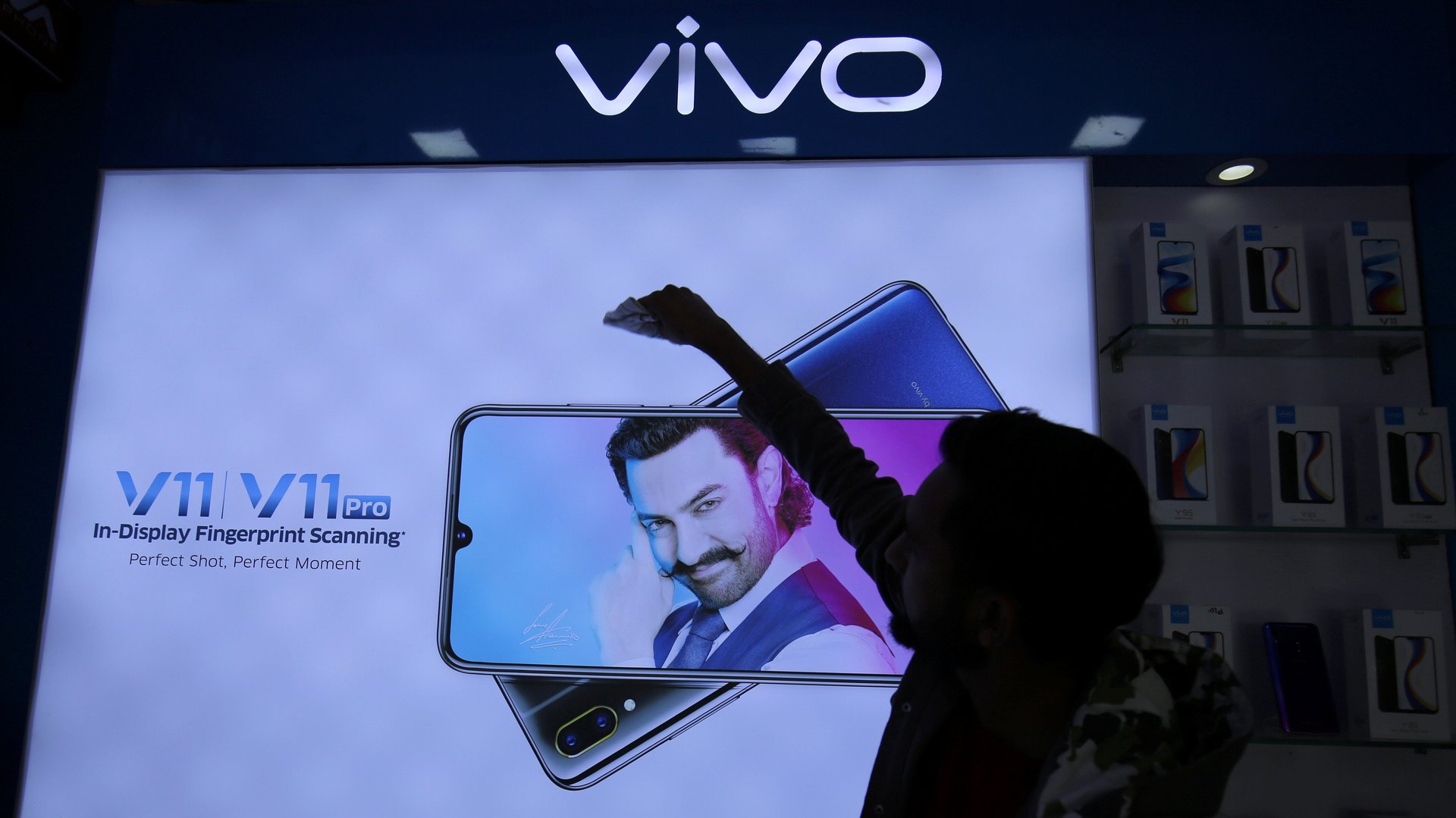Vivo’s Rs2,000 crore marketing splurge during IPL helps it clock best-ever sales in India
Chinese smartphone maker Vivo has just posted its best sales performance yet in the country.


Chinese smartphone maker Vivo has just posted its best sales performance yet in the country.
In the quarter ended June 2019, Vivo shipped 5.8 million smartphones to India, according to the Singapore-based market research firm Canalys. Vivo, owned by BBK Electronics, smashed its March quarter record of shipping 4.5 million units in the world’s second-largest smartphone market.
The company commanded an 18% market share in the June quarter, up from 10% a year ago and 15% in the previous quarter, Canalys noted.
Despite Vivo’s strong show, Xiaomi held steadfast as the market leader, accounting for nearly a third of all shipments for the second quarter in a row.
In addition, the market continued to consolidate among the top five vendors, who accounted for 88% of the total sales this quarter versus 80% a year ago.
“Vivo’s growth-stamina is commendable,” said Canalys analyst Shengtao Jin. “Its current trajectory would see it displace Samsung by the end of 2019, dealing a major blow to the Korean vendor. However, Samsung has now completed a disruptive portfolio refresh, which has positioned it to fight harder for share with tight margins.”
Playing the game
Vivo’s performance is the combined result of its manufacturing, retail and marketing efforts.
“During the year 2018, Vivo witnessed multiple milestones in India, right from the launch of flagship devices, to expansion of existing manufacturing facility by way of adding new SMT lines,” Nipun Marya, head of brand strategy at Vivo wrote in a June 2019 LinkedIn post.
The company invested Rs300 crore ($43.5 million) in its Greater Noida manufacturing plant, employing more than 5,000 people and churning out nearly 25 million products. Vivo has allocated another Rs4,000 crore for setting up a new manufacturing plant in the country, which will double the production capacity to 50 million units per year and generate another 5,000 jobs, Marya added.
Moreover, Vivo has over 70,000 retail outlets across India and 90% of its sales are generated through these offline channels. Its portfolio has fared well with the Y91 series of smartphones and online-exclusive Z1 Pro doing well.
Marketing also has a big hand in Vivo’s success story, experts say. It hired Bollywood star Aamir Khan as brand ambassador in March 2018. But sporting events are its biggest cash cow.
Vivo is the title sponsor of Pro Kabaddi but the brand’s title sponsorship for the Indian Premier League (IPL) cricketing tournament, on which it splurged Rs2,199 crore this year, has been the real boost. Vivo built social media campaigns on Facebook, Twitter, and Instagram around it and saw massive engagement and sales.
If India’s smartphone battle is indeed being fought out on the cricket field, there’s a reason to believe the gap between Vivo and Oppo—also owned by BBK—could widen.
Come Sept. 5, Bengaluru-based ed-tech platform Byju’s is set to replace Oppo as the official sponsor of the Indian cricket team. Will that put Oppo out-of-sight, out-of-mind, and make more room for Vivo?